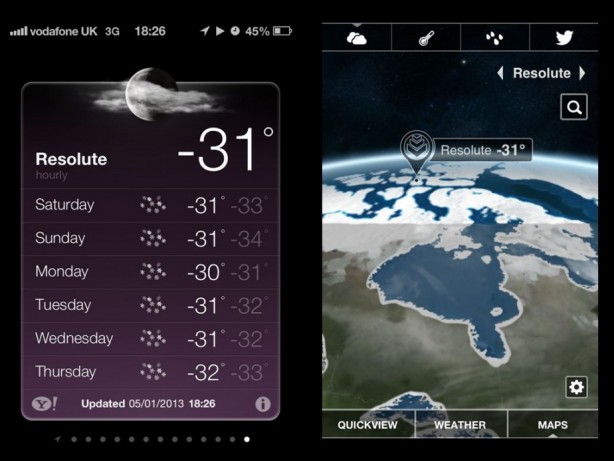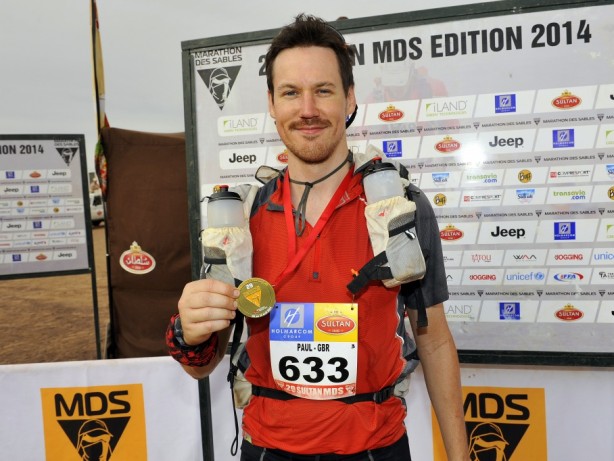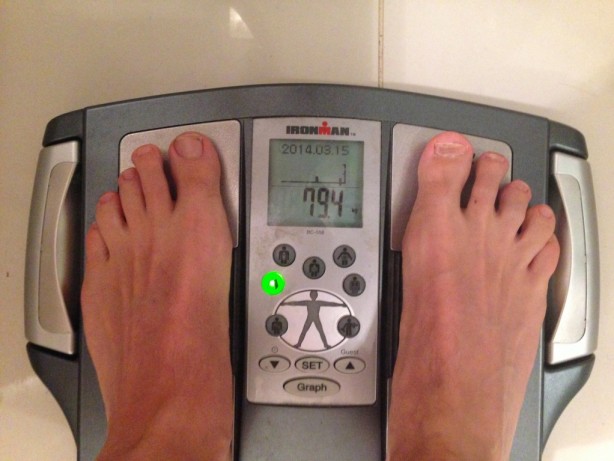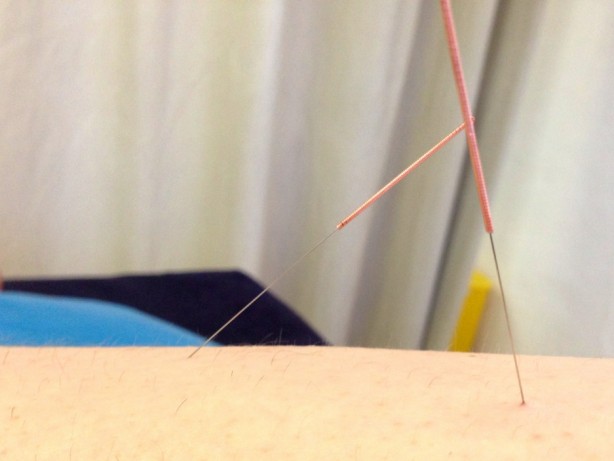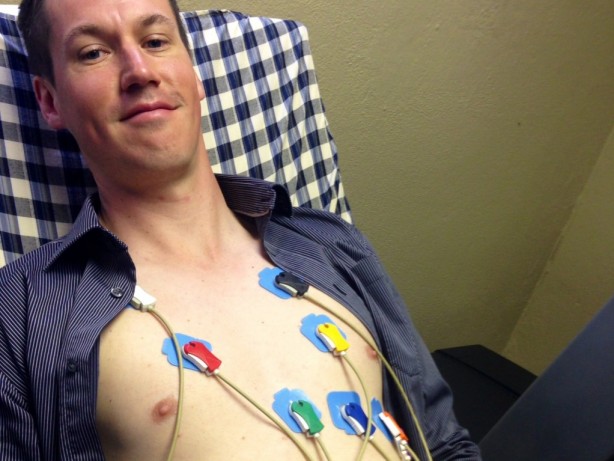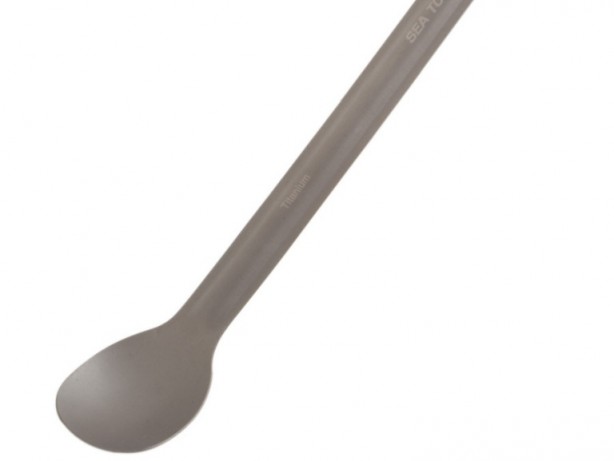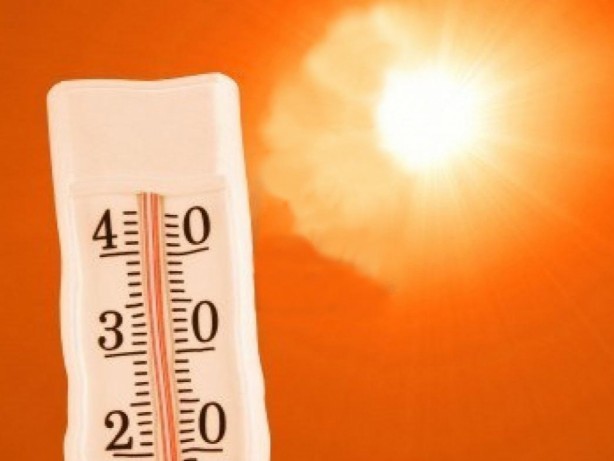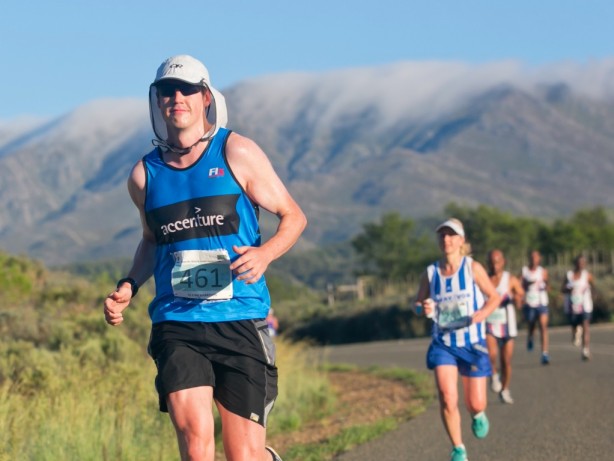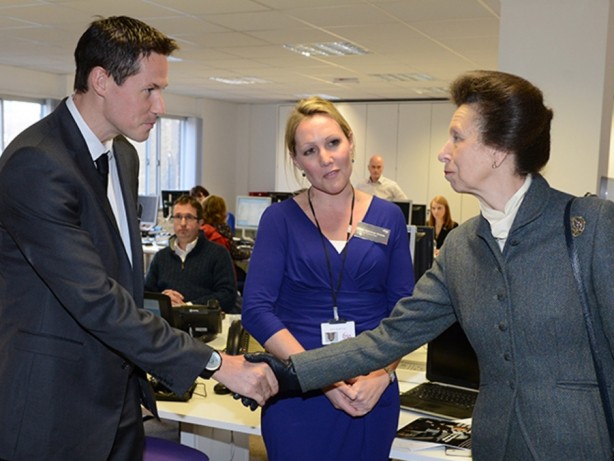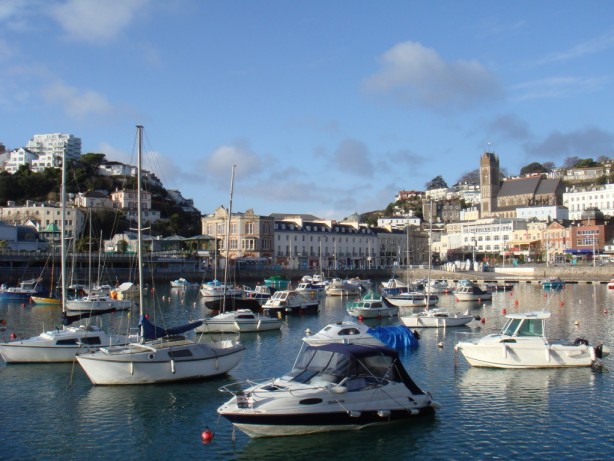How cold is 'cold'? - January 6th 2013
6th January 2013
One of the most common questions people ask me is 'how cold will it be at the North Pole?', to which I normally reply 'could be anything from -25c to -55c... and with windchill, perhaps as low as -80c'. Whilst normally looking utterly baffled by this, some people say 'well, once it's below -10c it all feels the same right?'. No. No it doesn't.
I checked the temperature of my start point in Resolute Bay (Northern Canada) and at the moment it is a balmy -31c (-24f), with windchill bringing it down to a little chillier -44c. That is a little warmer than average for this time of year. 600km to the north (where I am heading)... it is of course colder still.
Very few people have experienced extreme cold (below -30c) and I include myself in this having only been down to that temperature myself on a few occasions. What I can say definitively can say is that -50c will feel substantially different to -10c! It is after all the same temperature difference as 40c and 0c. Extreme cold presents a huge risk and I am learning that the science behind it, and the impact on humans isn't as simple as it might sound...
When 'cold' means dying, or losing bits of body
Unsurprisingly, extreme cold can kill you. Humans evolved on the plains of Africa and are primarily adapted to deal with heat extremeties, not cold. Whilst there are a number of adaptations to the cold (e.g. shivvering), if your body temperature drops siginificantly below 37c you will die - it is as simple as that. Even dropping 2.5c below your core body temperate results in a loss in dexterity, impaired muscle function and drop in mental ability. Dropping to below 26c for any period of time will almost certainly mean death. However, given the body's ability to protect the core, frostbite is a much more common danger.
As blood is bumped away from your extremities to protect your vital organs, the extremities will start to cool. This will result initially in 'frostnip', which is essentially a superficial freezing of the skin and then 'frostbite' where the tissue cells fully freeze and die. This is what causes fingers, toes, feet, noses etc to become blackened and need to be amputated... For a great account of a human story, check out my good mate Nigel Vardy's site at www.mrfrostbite.com.
Why wind makes it even colder
As a biological organism, the ambient air temperature is only part of the story. Wind plays a huge role in impacting your ability to retain heat (which at the end of the day is the most important thing to consider). The body essentially creates an insulating boundary of warm air around it, but as that air is disrupted (e.g. by wind replacing it with colder air), the rate of heat loss through convection increases and it feels colder. Obviously, the faster the wind, the greater the rate of surface cooling and heat loss. So, whilst also needing to worry about the ambient air temperature (potentially -55c) I also need to worry about the wind chill factor. If there is a wind of 50kph (not unusual for the arctic) the temperature will actually feel like -80c.
So how cold is 'cold'?
Let's assume an ambient temperature of -50c (baring in mind it will likely be colder with windchill!), a 'reasonable' (i.e. high street clothing) amount of clothes on, that you are static and taking no remedial action:
- You will probably die from hypothermia in less than 15m
- Should you get wet, you can reduce that to <5 minutes
- You will develop frostbite in less than 2 minutes on exposed skin
- Boiling water will freeze before it hits the ground (don't believe me... check this out)
- Plastics will become brittle and snap
- Your skin will freeze against metal (bad story: a few years back, a guy was trying to unfreeze some tent poles by putting his lips on them. He removed the poles and is lips came off with them. He was airlifted out of there)
How to stay alive
The only three sources of heat are 1) Yourself 2) Other people/animals and 3) Your gas cooker (tent only). So the challenge is to both generate heat (through exersion) and retain this heat (avoid heat loss). Clearly clothing is the most critical factor here - we have very specialist kit which should, in theory, keep us safe and 'warm'. That said, if you lose your gloves, you may well just lose your hands (if not taking remedial action).
Even with all the kit and training, it is extremely cold and dangerous. It's not something I can really prepare for and naturally adds to the nervousness about being in that temperature for 6 weeks...
Updates
Mission accomplished - April 24th 2014
Mission successful! I completed the Marathon Des Sables after 6 days of running, walking and hobbling the 250km through the Sahara in temperatures that went up to 54c (130f). The race... more »
Being light on my feet - March 20th 2014
I may be injured, but I am lighter than I have ever been. In just 6 months, I have lost over 10% of my bodyweight and am going to be hauling a lot less mass around the desert. At least one thing... more »
AAAGGGHHH, what is wrong with my leg?! - March 18th 2014
My last run... my very last long run, just 5km to go out of the 28km and BANG! Massive pain down the outside of my leg. Hmmm... I can't run. I can barely walk. This really isn't good at... more »
Injury and optimism - March 11th 2014
Hearing the words 'Sorry, I can't sign your medical form as you have a heart defect' did come as a bit of a surprise to me I must admit. A heart defect eh? That doesn't sound... more »
The weight of things - March 7th 2014
£12.99 for an 11g spoon? Absolutely worth it. £400 on a 535g ultralight sleeping bag? Seems reasonable. 7.45 calories per gram of macademia nuts - best stock up. I have even... more »
How hot is 'hot'? - February 28th 2014
Experiencing extreme cold was quite horrific at times. I regularly worried about bits of my face, hands and feet falling off. Extreme heat however, presents a whole host of other problems.... more »
Breaking my Marathon PB - February 22nd, 2014
Late flight, a greasy burger for dinner and a 3am start. Far from ideal preparation for what was only my 2nd ever timed marathon. Could I beat my marathon PB? Well, that wasn't going to be... more »
Running 1000km and questioning why? - February 14th 2014
Do I like running? No, I am pretty sure I don't. This weekend I reached a 'small' milestone in that I have done 1000km of running in training. Whilst I unwittingly completed the... more »
Deemed 'crazy' by royalty - January 23rd, 2014
I was once taught the concept of 'mirroring', matching one's facial expressions and body language to the person you are talking to - helping ensure they are comfortable. I appear to... more »
Christmas 'training' - December 26th, 2013
Despite having lived in Torquay for 18 years, I don't think I had ever once been running. Why would I have done that?! So, it's Christmas, and I need to run a marathon. This was easier... more »

Maps & Tracking

You can explore the full route to the North Pole and follow Paul’s progress with live maps that will plot his position each day as he progresses towards the pole more >
VSO

VSO is the world’s leading independent international development organisation that works through volunteers to fight poverty in developing countries (www.vso.org.uk). The Fire and Ice Challenge is aiming to raise £50,000 for VSO’s secure livelihoods programme more >


